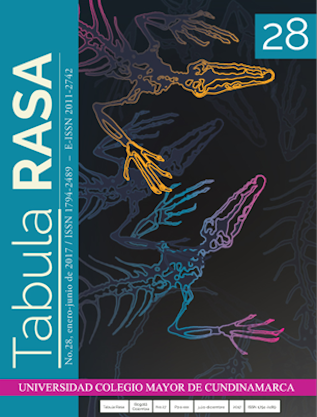Abolition geography and the problem of innocence.
Geografía de la abolición y el problema de la inocencia.
Show authors biography
This paper analyzes prisons geographies in the United States, under the light of racial capitalism. The Afro-American geographer departs from the thesis that contemporary prisons are extractive, that is, they extract people, and, when, in the best of cases, they do not end by being one figure within the high rates of early deaths, then they are thrown out, deprived of their right to be themselves —A dynamics stimulating the rapid flow of money. Face to this life-annulling topography, Gilmore —also an Afro-American activist— reflects upon her experience against the military prison complex, the problem of innocence, and Black radical tradition. Gilmore takes the concept of “infrastructure of feeling” to think about the conditions of possibility of abolition geographies, which understand freedom as a provisional place or as one built by people with their resources at hand.
Article visits 267 | PDF visits 170




